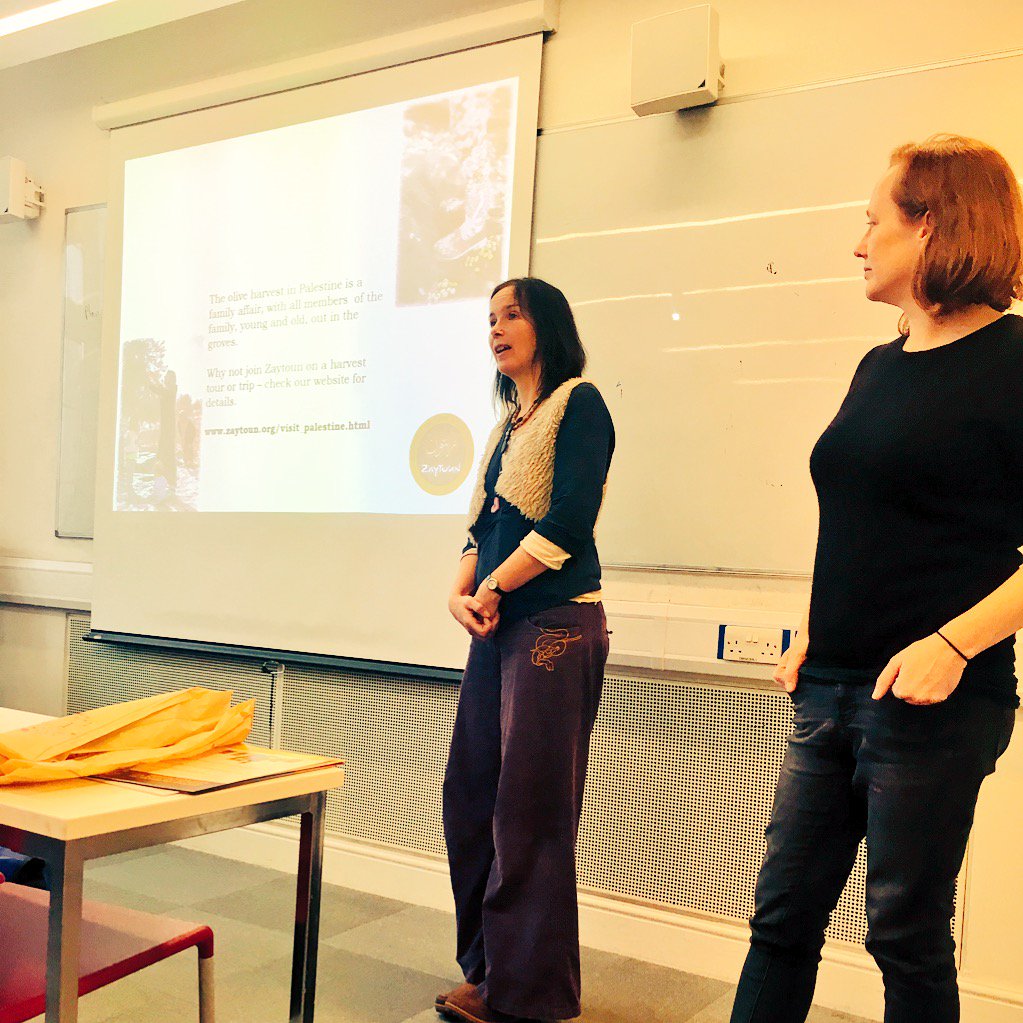This week Cathi Pawson and Heather Masoud, co-founders of Zaytoun, joined us for our final social enterprise case study of the term. Having created a market in the UK for artisanal Palestinian produce, underpinned by a strong commitment to ethical business, they shared their insights on how to build a business around an ethical production chain.
Be passionate and establish relationships
As Cathi and Heather have proved, you don’t necessarily need to be business literate to start up an ethical production chain – though it probably helps! What is definitely important is to make sure that your passion for your producers exceeds your desire to be financially successful. It’s this passion that’ll give you the drive to succeed and hold all the elements of production in your business accountable. If you decide to push forward with an idea without business experience, make sure you establish good relationships with larger, established Fairtrade organisations such as Cafédirect, Divine, Traidcraft and Liberation Nuts. You’ll be surprised at how helpful and supportive they are of innovation in the sector.

Research and market your product well
Once you have a product, carry out research on your various customer bases to understand what motivates them. Often founders of social enterprises are so committed to their cause they forget other people may buy into their idea for a different reason to their own. This is well demonstrated by Zaytoun and their diversified customer base. Some customers buy into the quality of their products, others are more interested in the story of their products, while for others, both are important.
Given that Fairtrade products often sell because of commitment to an ethical supply and production chain, you need to make sure that your marketing is strong. Don’t assume that everyone already knows the story of the producers, and ensure you tell your stories in new ways to reach out to more people and make them passionate about your idea. One way to do this is to tailor your content for each key influencer (co-operatives, unions, Fairtrade organisations etc.) via social media, making it easier for them to share.
Connect people through Fairtrade
Remember that Fairtrade is not just about giving a fair price but also more broadly about connecting people from different places together, sharing their stories, and dispelling myths through trade. As Cathi mentioned during our event, people often have immense pride in their produce – especially if its production is tied into their traditions – and trading is a way for them to share their stories. Therefore, it’s crucial you involve others in your business, not only as a way to understand existing problems and receiving feedback on your solution (from your supply chain) but also as a way of making others believe in your idea too, whether that’s customers or friends. In this way, by achieving appreciation for your products through word-of-mouth, you’ll have a stronger chance of people choosing your product against non-Fairtrade brands.





